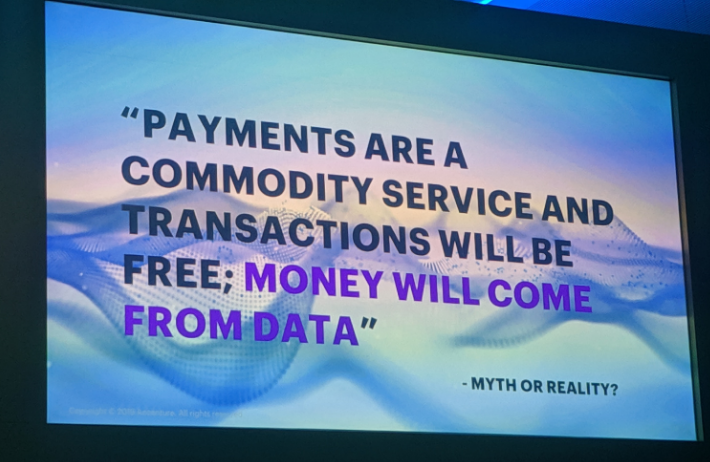The Evolution of Data: Money 20/20 Insight

The Evolution of Data: Money 20/20 Insight
Indue’s Chief Commercial Officer, Dave Hemingway, has returned from Money 20/20, Europe’s largest Payments conference, both intrigued and energised about the evolution of data in the payments sector.
Money 20/20 is a “melting pot” for “extraordinary experiments”, according to conference President Tracey Davies. This year, it didn’t disappoint. I left buoyed by the comfort that Indue is asking the right questions and exploring the right opportunities, and by the fact that we’re not alone. A common theme at this year’s Money 20/20 was the evolution of data.
In particular, the revised European open banking model and its impact on financial institutions. From an Australian Payment Service Provider, I was intrigued by the contrast with our multi-sector ‘open data’ model.
Last year was a game-changer for European retail banking, with the introduction of the Revised Payment Service Directive (PSD2). As PSD2 is implemented, banks’ monopoly on their customers’ account information and payment services will dissipate. This enables bank customers, both consumers and businesses, to use third-party providers to manage their finances. Soon, we could be using the likes of Facebook or Google to pay our bills, making P2P transfers and analysing our spending, while still having money placed safely in our current bank account.
I wasn’t the only curious Australian at Money 20/20. We were well-represented among participants and in presentations, with regular references throughout to Australia’s new Consumer Data Right legislation and the associated Consumer Data Standards (being developed by CSIRO’s data innovation group, Data 61). It was a commonly held view that our framework facilitated a more comprehensive, standardised model to fall back on and provided a contrasting view of how open data can work in not just the banking sector but other sectors including utility providers and telcos.
Discussion around the open banking model in Europe also led to thought-provoking discussion and debate on how banks could leverage data and technology to create new solutions to deepen customer relationships and drive new commercial opportunities.
Accenture Managing Director of Payments Sulabh Agarwal posed an interesting hypothetical: “Payments are a commodity service and transactions will be free; money will come from the data – myth or reality?” His premise was that if payments are now largely commodities, we should look to build value around the payment that customers will accept if Payment Service Providers want to survive. In his view, data monetisation is still developing — payment providers are moving from data as a complementary insight to data as a chargeable product. How we build value around payments is a new and rapidly evolving frontier for our sector.
This idea intersected with Dr Louise Beaumont’s thought-provoking presentation, Unlocking structured data with AI. Indue successfully implemented the use of artificial intelligence to protect consumers from financial crime related to NPP last year and are in the process of rolling it out more broadly across our payment channels.
AI isn’t new and is already used frequently across a broad range of industries, however Dr Beaumont’s insights left me pondering whether AI has a place in our industry beyond preventing financial crime. In her view, AI is the only way to tackle the unfathomable volume of unstructured data, such as texts, audio, video and images. Unstructured data accounts for more than 80 per cent of the world’s data and is multiplying exponentially by the millisecond. Dr Beaumont argues AI can gain insights and foresights across many areas.
Typically, these are thought to be helpful to inform marketing – to differentiate and position brands and understand trends. However, the same analysis can be applied to payments to glean insights on consumer behaviour. Who is spending money, where, and why?
Ultimately, we want to build value — so how do we take what we offer currently and add value? It’s food for thought and the motivation to keep us moving forward. It’s early days and, apart from Google, there are still only a handful of organisations who are monetising the value of data effectively. But it’s a frontier we at Indue are ready to explore with care and curiosity to see what’s possible.

